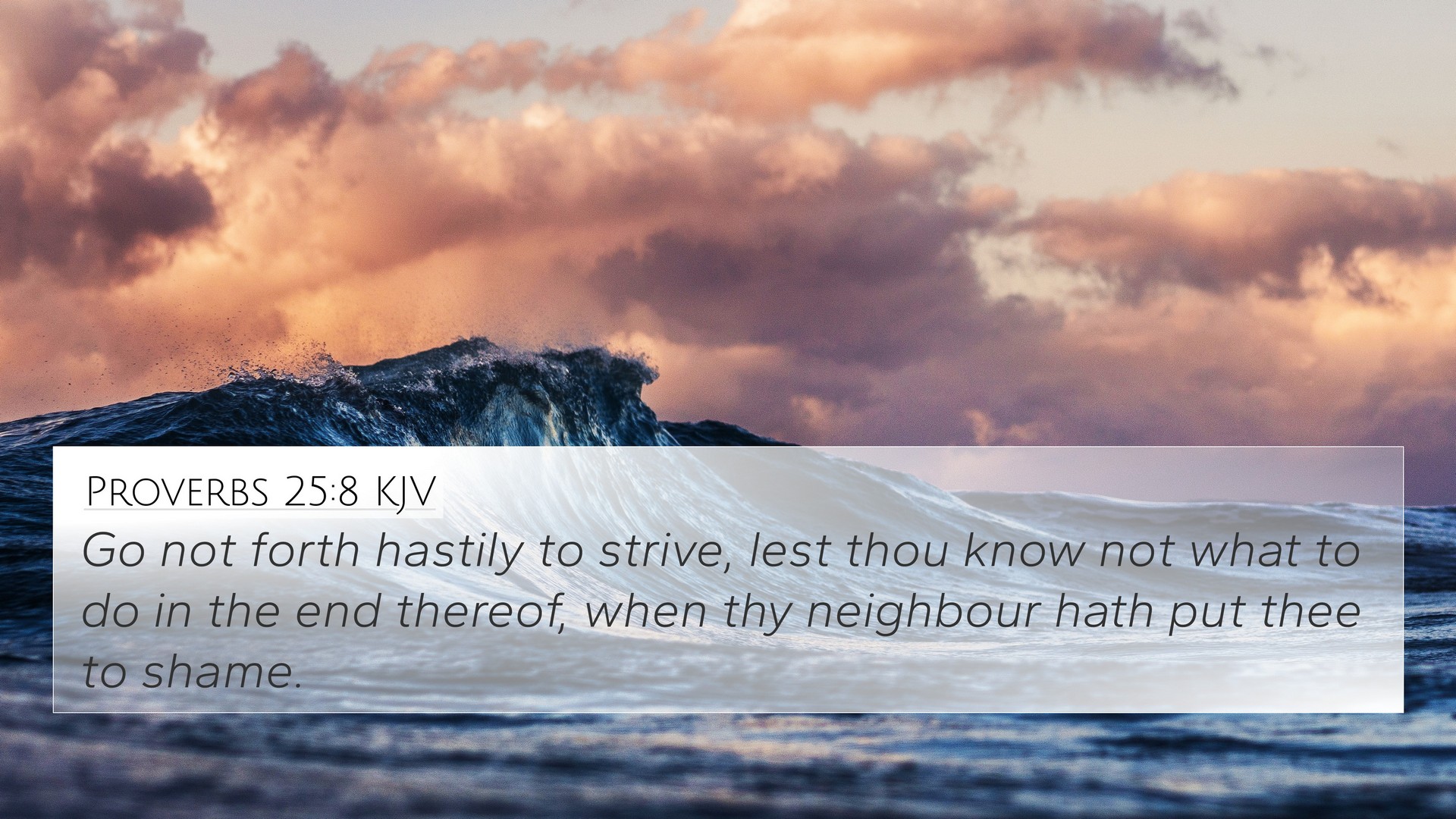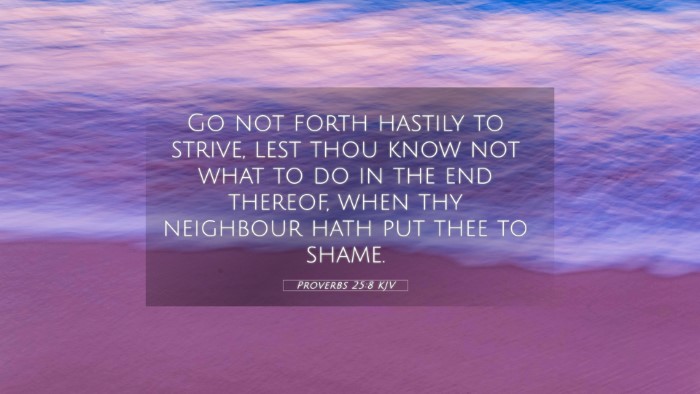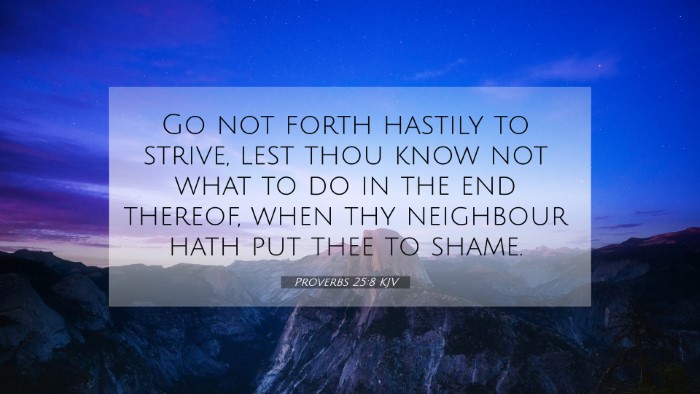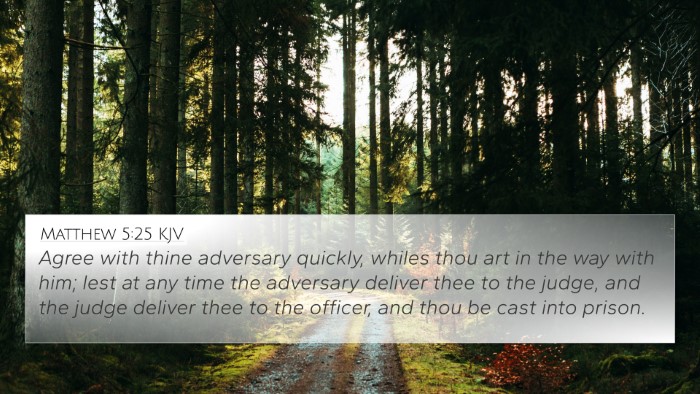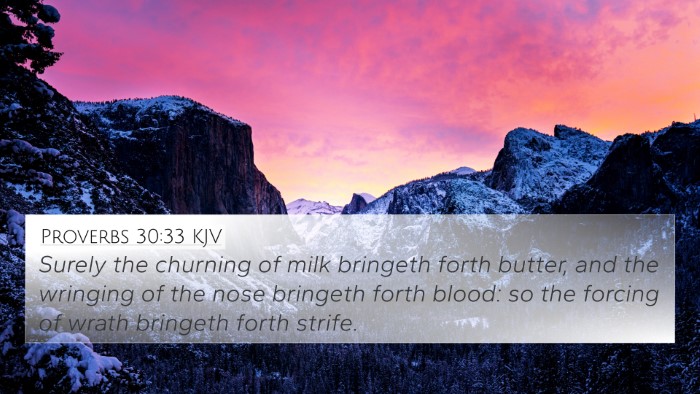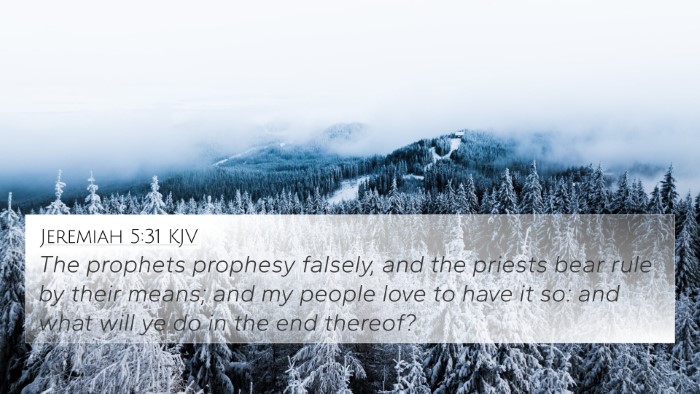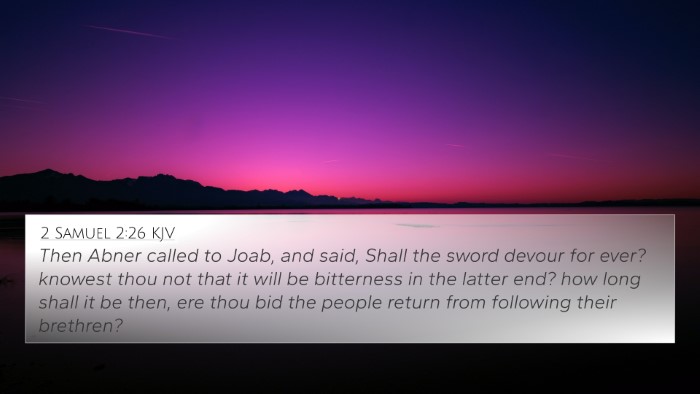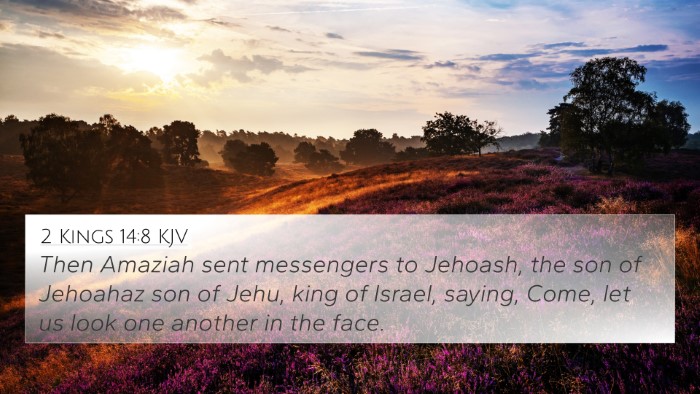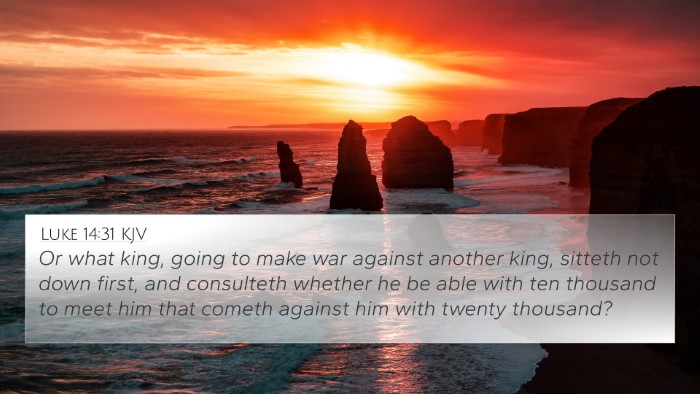Understanding Proverbs 25:8
Proverbs 25:8 states: "Do not hastily bring into court, for what will you do in the end when your neighbor puts you to shame?" This verse serves as a warning against rushing to judgment and highlights the importance of careful consideration and temperance in disputes.
Key Insights from Public Domain Commentaries
- Matthew Henry: Henry emphasizes the significance of understanding the consequences of precipitate actions. He suggests that hastiness could lead to shame, particularly when one is unprepared for the outcome in a dispute. He encourages believers to think deeply before taking legal actions against others.
- Albert Barnes: Barnes notes that the verse illustrates the value of patience and prudence in interpersonal relationships. He argues that approaching conflicts without thought often results in regret. Barnes believes this verse underlines the necessity of wisdom in dealing with others.
- Adam Clarke: Clarke expounds on the cultural context, emphasizing how disputes could lead to social embarrassment. He argues that bringing issues to court should be a last resort and advises preserving relationships through negotiation and understanding.
Thematic Connections and Cross-References
This verse not only provides insight into legal matters but also imparts profound wisdom applicable to various aspects of life, including relationships and communication. Here are some relevant cross-references:
- James 1:19-20: "Everyone should be quick to listen, slow to speak and slow to become angry." This passage resonates with Proverbs 25:8 as it emphasizes patience and carefulness in communication.
- Matthew 7:1: "Do not judge, or you too will be judged." This verse complements the warning against hasty judgment found in Proverbs 25:8.
- Proverbs 18:13: "To answer before listening—that is folly and shame." This directly ties into the theme of thinking before acting.
- Ecclesiastes 7:9: "Do not be quickly provoked in your spirit, for anger resides in the lap of fools." This also reflects the necessity of caution before making decisions or accusations.
- Proverbs 20:3: "It is to one's honor to avoid strife, but every fool is quick to quarrel." This verse mirrors the call for patience in Proverbs 25:8.
- Romans 12:19: "Do not take revenge, my dear friends, but leave room for God’s wrath, for it is written: 'It is mine to avenge; I will repay,' says the Lord." This passage reinforces the idea of not rushing into judgment.
- Proverbs 15:1: "A gentle answer turns away wrath, but a harsh word stirs up anger." This underscores the importance of how we approach others in conflict.
Practical Applications
In light of Proverbs 25:8, individuals are encouraged to:
- Reflect Before Acting: Consider outcomes and potential repercussions before taking a dispute to court or judging others.
- Seek Mediation: Look for ways to resolve conflicts amicably instead of escalating them through judgment.
- Exercise Patience: Cultivate patience and understanding in personal relationships to avoid unnecessary strife.
- Communicate Wisely: Ensure that communication is thoughtful and measured to prevent misunderstandings.
Conclusion
Proverbs 25:8 teaches us the importance of caution, reflection, and wisdom in our interactions with others. By understanding this verse and its implications, along with its connections to other scripture, readers can apply these principles to foster healthier relationships and more thoughtful decision-making in their lives.
Further Study and Resources
For those interested in exploring further, tools for Bible cross-referencing can provide deeper insights into the connections among scripture. A Bible concordance or a cross-reference Bible study guide may aid in examining the inter-Biblical dialogue present in this verse.
